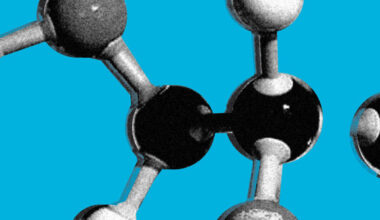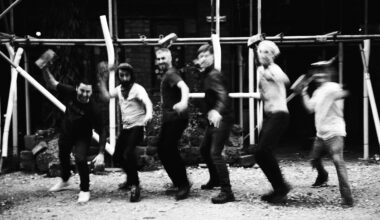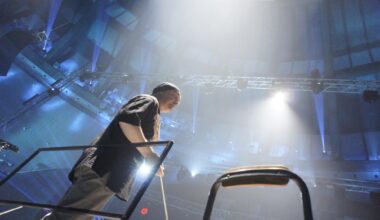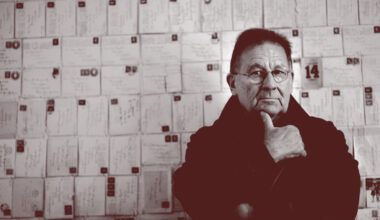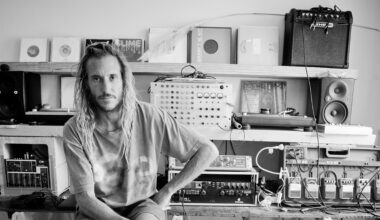Even on their 1990 debut, Essex’s Ultramarine were ahead of the game. Their new ‘Signals In space’ album is yet another evolution, drawing on their love of field recordings, post-rock and house music…
“What’s changed for us as the technology’s improved is it has enabled us do what we’ve always been doing, mixing up electronics with acoustic instrumentation, but better,” says Ultramarine’s Paul Hammond, talking about the duo’s new method of working together. “Now it’s much more ingrained, the way that we put the records together is more natural. It’s more performance based so we no longer spend half a day just writing a hi-hat pattern.”
This enhanced means of creation is evident on their new album, ‘Signals Into Space’. Released via the legendary independent imprint Les Disques Du Crépuscule, it also marks a return the label that released their 1990 debut album ‘Folk’. One of two new outings from the group, it finds Paul Hammond and Ian Cooper returning to themes and ideas present in their classic 1990s records. What’s changed here is the refinement of their sound, and a more seamless merging of synths, found sounds, guitar and saxophone, plus occasional guest vocals, than we’ve heard from them before.
On ‘Folk’ and the 1991 follow-up ‘Every Man And Woman Is A Star’, Ultramarine pioneered a lush mixture of Balearic house, downtempo beats and pastoral flute and guitar years before anyone thought of such ideas as folktronica. Collaborating with Robert Wyatt on 1993’s ‘United Kingdoms’ album, they drew a link to the UK’s psychedelic/prog past, and sprinkled jazz instrumentation into their recipe too.
Ultramarine were way ahead of the curve, predicting the blend of synthetic and natural that is now ubiquitous in music. While making ‘Signals Into Space’ they found combining these disparate components far easier, thanks not only to the advances in software, but their increased musical expertise.
“It was quite an effort putting the two things together when we were doing ‘United Kingdoms’,” says Hammond. “We were trying to cut samples together with live playing and drum machines. Technically it was really hard work. Listening back to some of those records, the two elements jar in a way, which gives them a certain charm. The same with ‘Every Man And Woman Is A Star’ – it wasn’t a seamless blending, but that was the original intention. Now it’s a much more organic combination of the two things.”
‘Signals Into Space’ is a deep, richly detailed record, where new aspects reveal themselves with each listen. Ultramarine’s first album since 2013’s ‘This Time Last Year’ (and their seventh in total), it found the London-based Hammond and Essex-based Cooper recording in a small, windowless studio, letting their imaginations go into overdrive, aided by occasional guest vocals from cult art pop singer and Crépuscule labelmate, Anna Domino, saxophone from ECM Records’ Iain Ballamy and vibraphone from Ric Elsworth.
Intensely atmospheric, the album is again redolent of the natural world, especially the English countryside in its sometimes beautiful, sometimes bleak manifestations. ‘Spark From Flint To Clay’, with its desolate, windswept guitar and synth echoes, is like viewing green fields from the rain-spattered windows of a train, the vocals of Anna Domino weaving lyrics that spark with intense imagery.

On occasion, as on the subtle beats, dubby FX and burbling analogue bassline of ‘If Not Now, When?’, the record suggests a light dappling, the rich colours of autumn leaves. Conjuring up places is a recurring theme in electronic music, but Ultramarine do it particularly well, and made the link explicit recently by putting out the conceptual ‘Blackwaterside’ seven-inch single/book via the Random Spectacular publishing house.
“That was themed around the Blackwater Estuary in Essex, where we’re originally from, and where Ian still lives,” says Hammond. “There’s music, there’s photography and poetry that goes with it. This sense of place in our music is an area we’ve thought about quite a bit, going all the way back to ‘Every Man And Woman Is A Star’. That was a fictitious, slightly light-hearted reference to travelling in America, and ‘United Kingdoms’ had a very obviously English theme. Because we’ve been doing primarily instrumental music, the ‘Blackwaterside’ project was a useful way of framing it, giving it some sort of context as you’re putting it together.”
“I think all types of music have the potential to paint pictures for the listener,” adds Cooper. “Perhaps it is more pronounced with electronic music, where it is not always possible to identify the exact instrument being used. It is only when a collection of parts begin to conjure up images for us that we consider it to be the start of an Ultramarine track.”
The Blackwater Estuary makes its way onto ‘Signals Into Space’ in the found sound samples of running water that bubble in the background of the melancholy ‘Du Sud’, which has the austere majesty of a large body of water cloaked in cloud.
“That sample was processed through a chain of guitar effect pedals and was an early starting point for the track,” says Cooper. “Field recordings are just another potential source and can add a new sound dimension, or reposition the music into another context. With ‘Du Sud’ though, guitar, bass and the water effect all came together quickly in the same session and gelled.”
In the studio, Cooper is responsible for the guitar, which he uses throughout he new album in a textural way, doused in effects and floating in the ether. His guitar playing is suggestive of post-rock bands such as Bark Psychosis or Tortoise, and expands on an aspect first hinted at on ‘This Time Last Year’.
“I’ve been a fan of [Tortoise guitarist] Jeff Parker for a long time,” says Cooper, “but it doesn’t stop there when it comes to guitarists and sounds that have been an influence. You have Robert Fripp, Bill Frisell, Vini Reilly and Robin Guthrie, and I love the Harold Budd albums with Clive Wright.”
Additionally, the sublime saxophone playing of Iain Ballamy (who records as part of the group Food and as a solo artist) on the album points back to the guest musicians and jazz influences of some of Ultramarine’s earlier work.
“He’s someone we’ve been in touch with over the years,” says Hammond. “We really liked the work he did with Food, especially the albums on ECM Records. We’ve worked with quite a lot of jazz players, because we always enjoyed having that freeform element.”
Anna Domino brings another new dimension to Ultramarine’s sound. Known for her synth-strewn, post-punk-influenced pop, such as 1984’s classic ‘East And West’ album on Les Disques Du Crépuscule, her soulful voice and poetic words enhance the record and further intensify the mental pictures it summons up.
As long-time fans of Domino, Ultramarine considered her a natural choice of collaborator, especially as they’ve shared the same label.
“We asked if she’d be interested in a collaboration, which was obviously facilitated by the Crépuscule connection,” says Hammond. “I like the style of her records, what she did in the 80s is unashamed pop music, but there was quite an electronic element, with drum machines and synths creating a backing to it. I’ve always liked the feel of her work, there’s a great tone to it, and she’s always been brilliant lyrically.”
Despite their embrace of acoustic sound sources, Ultramarine still consider themselves very much an electronic group. In Paul Hammond’s view, the guitar, saxophone and vocals augment rather than dominate the electronic core of the sound.
“We both love electronic music, we love the sound of the machines and the feel,” says Hammond. “It’s a bit more than being another part of the sound for us. To me, there’s an attitude towards using electronics. If you go back to 80s post-punk and the use of electronics then, there was an anti-rock aspect, an anti-macho kind of thing. It had taken a lot of the machismo out of rock. Ultimately we’re from that generation, and completely influenced by everything that was going on from Factory and Rough Trade and 4AD. There’s still a bit of that in our music. Like a lot of other people, we picked up on house and techno as we went along.”
On one of the album’s best tracks, ‘Cross Reference’, the house influence surfaces again, its moody organ chords, four-four beat and bustling percussion mixing with guitar textures to excellent effect. The pair have continued to dabble with dance music in recent years, releasing a 10-inch single on the West Norwood Cassette Library label, while Hammond started the well-regarded Real Soon imprint during a lengthy hiatus between Ultramarine projects.
“Doing the label was about exploring the house influenced stuff,” he says, “but slightly more on the abstract, experimental end of it. I love that.”
Released at the same time as ‘Signals Into Space’ is a second new album, ‘Meditations’, a very different work altogether. Composed of two long tracks, it’s an entirely ambient, almost new age affair that arose from the same studio sessions as ‘Signals Into Space’, but which produced music that didn’t fit on that record.
Get the print magazine bundled with limited edition, exclusive vinyl releases

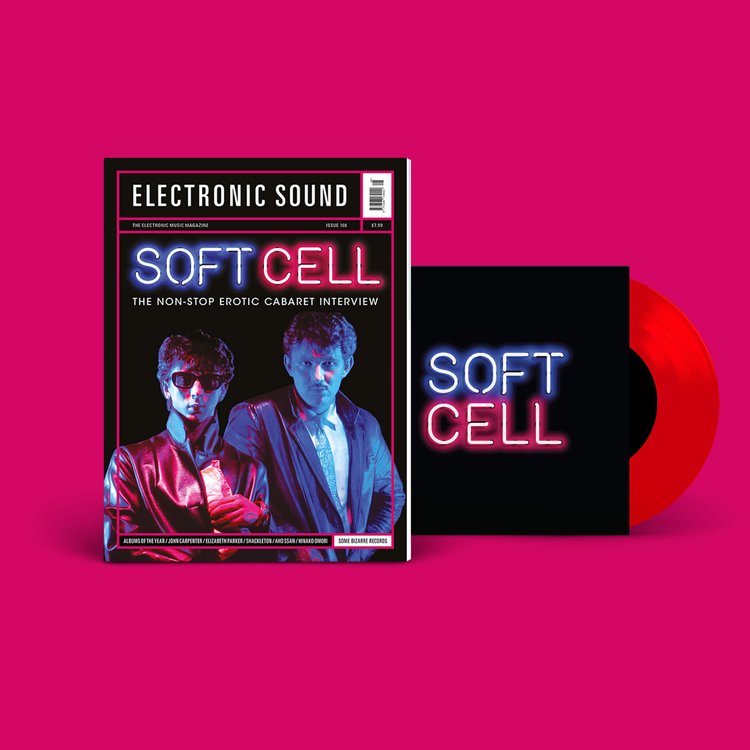
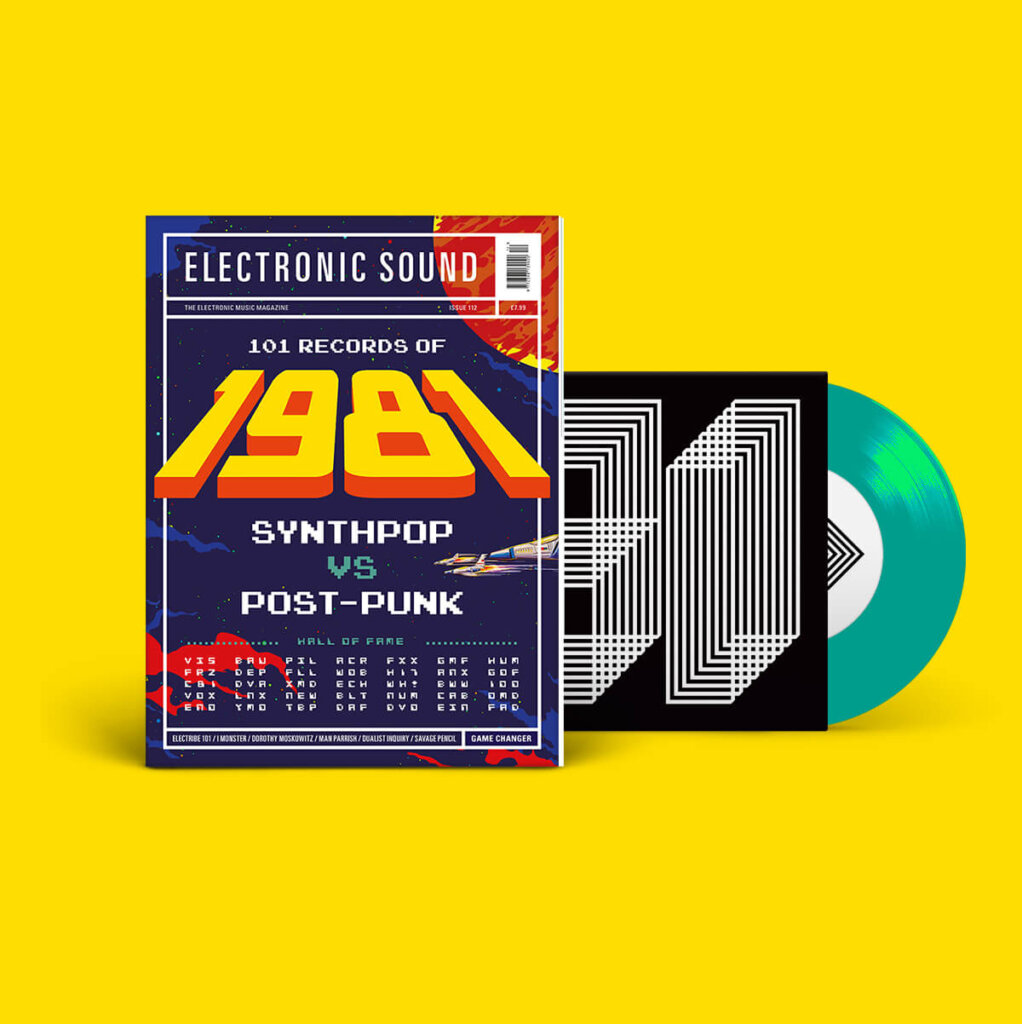
Reminiscent in places of gamelan music in its bell-like tones that mix hypnotically with the dreamy guitar smears, and again using found sounds, it reveals another hitherto unseen side of Ultramarine.
“It’s something that we were doing at the same time as the album, but it’s not really musically related,” says Hammond. “It was exploring something that was completely ambient, we didn’t want to have any rhythms in it, and it is a little bit playful, quite new age sounding. There are some slight clichés in there from that world. It is really good to fall asleep to – when we were putting it together, we were both really struggling to keep awake. It’s meant to be quite functional relaxation music. The source instruments in it are just a thumb piano and guitar, it’s pretty much all derived from that.”
Creatively reinvigorated, Ultramarine want to continue on their latest trajectory, and produce some shorter works continuing the themes and sounds of ‘Signals Into Space’. For Hammond especially, his love for music, and making it, has only grown in recent years.
“I find the older I get, the more I value music, and realise what a source of great pleasure and communication it is,” says Hammond. “That sounds a little bit hippy-ish I know! As you get disenchanted with various aspects of life, for me the love of music becomes stronger. It feels like a privilege to be involved with it and to have the time and the facility to do it.”
‘Signals Into Space’ and the companion ‘Meditations’ album are both out on Les Disques Du Crépuscule

